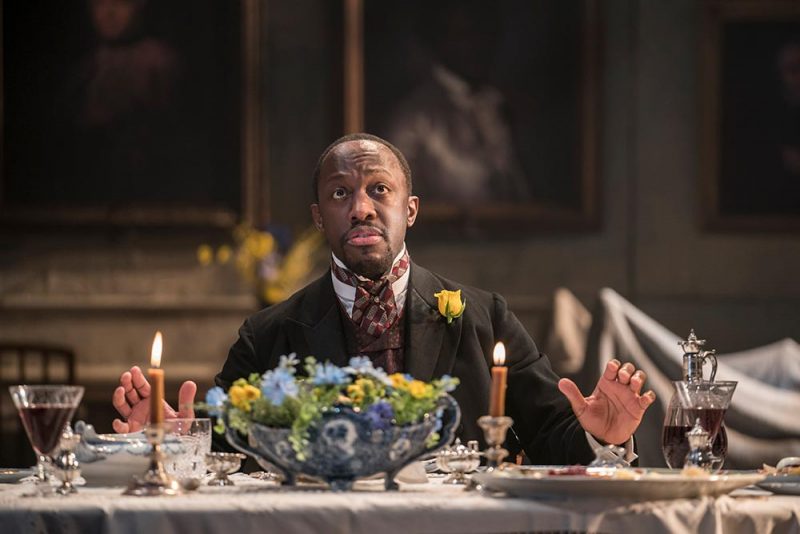With a divided country driven mad by political strife as it hovers on the brink of a contentious election, you could almost imagine that Rosmersholm was inspired by Britain’s own fevered situation.
Though some minor details have amplified its relevance to our times, the Duke of York’s latest production is a revival of an 1886 work by Norwegian playwright Henrik Ibsen. Centred on pastor and widower John Rosmer (played by Tom Burke), it follows his struggle to bridge divides between new and old friends and new and old politics.
The story begins as Andreas Kroll (Giles Terera) returns after an absence from Rosmer’s household following the death of Beth, Rosmer’s wife and Kroll’s sister. Beth killed herself after struggling with madness and failing to fall pregnant by Rosmer.
On his arrival Kroll is greeted by Rebecca West (Hayley Atwell), a helper brought into the home to care for Beth but staying on beyond the death, for reasons Kroll finds hard to fathom. The relationship between West and Rosmer is presented by both as ambiguous, but other characters rightly suspect something deep is between them.
Though the personal drama eventually defines the plot, it is accompanied by deep political divisions. Since his last time as Rosmersholm Kroll has become a traditionalist politician, and returned to the town for what appears to be a by-election. In this he battles against radical paper The Lighthouse, which champions equality and more progressive social mores, and is enthusiastically read by West.
The blend of the personal and the political captures a much of the passion behind our own riven times, with Rosmer as the central battlefield. During his wife’s decline and demise the pastor has lost much of his faith and traditional thinking, but continues to occupy a house where his forefathers’ portraits bear down upon him in the beautiful set.
The personal drama, and particularly Rosmer’s guilt over his wife’s death, eventually comes to overwhelm any political machinations of the characters. Torn between his roots and his thoughts, Rosmer eventually gives up on it all. In turn West is dismayed at how her feelings for him have diminished her political zeal.
Given the establishment view is now progressive in bent, it is not obvious how this play sits over our current situation. In his contempt for electoral will Kroll resembles a remainer more than a leaver, but in his rootedness is the other way. Likewise, West is a progressive rebel more familiar to the 1960s than our own times.
Even so, this production offers a compelling view of how the personal and the political are tough to untangle, and its suggestion that the former should trump the latter is sound.
Image Giles Terera as Andreas Kroll in Rosmersholm by Johan Persson
